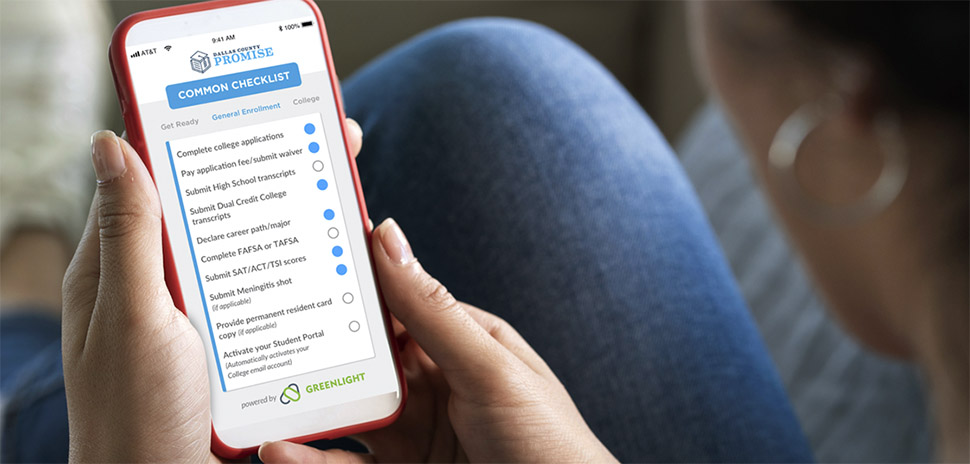Millions of Americans have immediate access to their personal banking information using mobile phones and personal computers. Customers can check accounts, deposit checks, transfer funds, and pay bills online. According to a study by Business Insider Intelligence, nearly nine out of ten survey respondents said they use mobile banking.
Now, how many readers have immediate access to all verified records from high school through college and work? This is equally valuable currency that no one seems to be able to effectively own and manage today. Institutions “own” the data, not the students or alumni. Institutions charge a fee to use it, and most of us likely have unverified copies saved in a file or printed and stuffed in a file folder in storage somewhere.
With the dynamic nature of the job market, there is a pressing need for life-long learning to continually update, verify, and share new skills and credentials. Students and workers need to own their verified information and a better way to effectively manage it.
A few examples that our students and workers face today in Texas due to lack of ownership and ability to manage verified records and accounts include:
- College remediation: Verified ACT or SAT scores do not make it to the colleges, and students are inappropriately placed in college remediation at staggering rates.
- High School Transcripts: The high school transcript is too limiting and does not reflect work, college, and community activities that are critical for college enrollment and jobs.
- Transfer & Reverse Transfer: Students have difficulty placing themselves on the market for transfer opportunities. When they do transfer early from a community college to a university, they cannot then earn their associate degree through reverse transfer.
- Internships: Students cannot place their verified skills on the market and internships are most often not documented, verified, and sharable to help students advance in careers.
- Certifications & Skills: Students often take certification exams and gain skills that never make it on their verified permanent record to share and advance in their career.
- Jobs: Students build an unverified resume and before they are hired, they must run back to their colleges and high schools to cobble together their academic records to verify what is on the education section of their resume matches.
- Workforce Offices: Sit at one of our workforce offices for a few hours. Step one usually goes like this: ‘Let me see your education and work experiences.’ From pockets or purses you will see a collection of crumpled up papers and post-it notes. Nothing better captures how we have systematically withheld information from people who need it the most.
When you do not own and manage your information, you don’t know what’s in your account. Without being an informed consumer, you’re not able to use the currency you earned.
To empower local students of all ages, our school districts, colleges, and employers have come together in Dallas to create a new paradigm where the student is treated more like a valued consumer of their information. This effort is being led by blockchain technology, with a new Dallas-based company Greenlight Credentials, to revolutionize online education and work account management.
This year more than 21,000 high school seniors in Dallas County will set up an account and own their verified records to help them more effectively and equitably enter college. Additionally, over 60,000 Dallas College students have already setup an account to help them transition to a university partner or a job. Like online banking, these new college and work accounts have four basic functions.
- Secure: Students and workers set up a secure online education and work profile that they own like their bank accounts. Just like banking, students are able to have schools, employers, and others deposit their verified skills and credentials into their account.
- Verify: Students and workers are able to manage their verified skills, performances, and credentials in their online accounts.
- Share: Students and workers now have the ability to share their verified records and place themselves on the market for colleges and employers.
- Match: Students can be proactively matched to colleges and employers. Just like banking where your FICO scores are a product of your financial worthiness, a student can now be instantly matched with colleges and employers based on their aggregate academic records, skills and competencies all discoverable in one place.
Dallas is leading the nation in the use of digital credentials. If you want to learn more about this technology, visit glcredentials.com. There will be an American city that solves the talent gap. Our bet is that it will be the city that understands how to empower talent with their secure and verified data. It is time to entrust students and workers with their information, like we do with people and their money.
Anne Motsenbocker, Managing Director at JPMorgan Chase

Rick Lopez, Ed.D., Superintendent Garland ISD

Dallas County Promise is a last-dollar, full-tuition scholarship for an associate’s degree provided by the Dallas College Foundation as well as many university partners to Dallas County high school students, regardless of family income or grade point average. The Promise at the Commit Partnership works with 11 school districts, 57 high schools, and over 21,000 high school seniors annually to equip them for their journey through college and into work with a focus on college affordability, equity, and workforce alignment. Motsenbocker is the Promise Advisory Board Chair. Lopez is a Promise Advisory Board Member.
Views and opinions expressed by Voices contributors are their own.
![]()
Get on the list.
Dallas Innovates, every day.
Sign up to keep your eye on what’s new and next in Dallas-Fort Worth, every day.



























